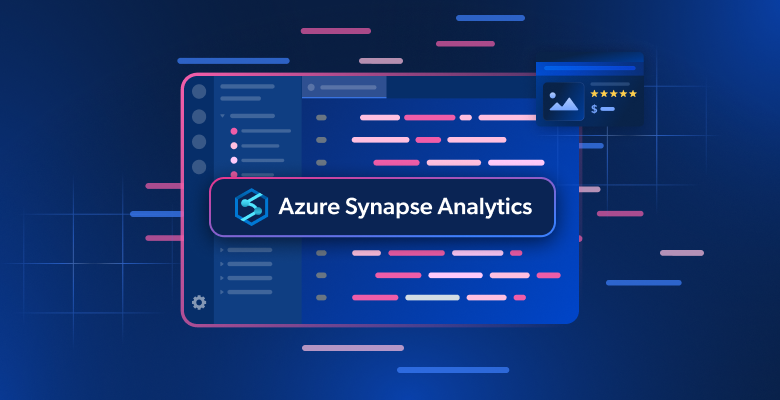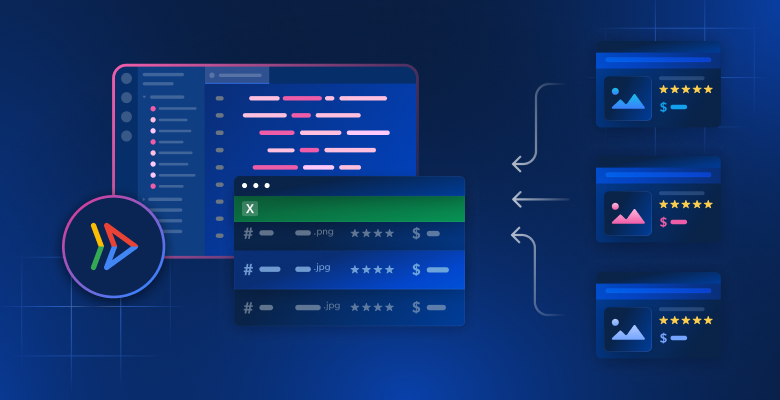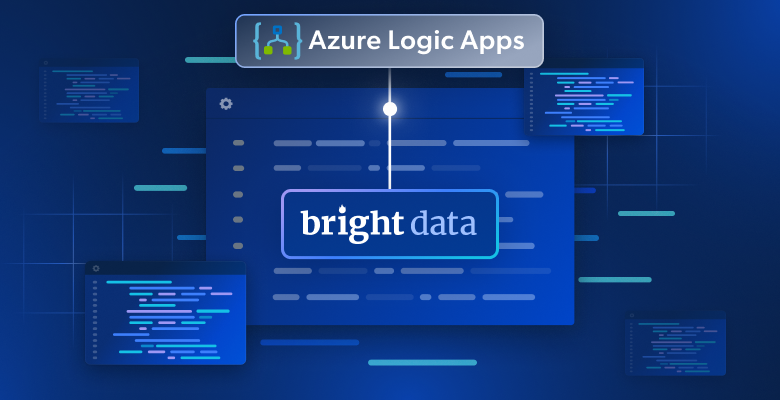In this guide, you will see:
- The definition of residential proxies
- How a residential proxy works
- The types of proxy residential servers
- The most relevant use cases for these proxies
- The list of the best residential proxies
Let’s dive in!
What Are Residential Proxies?
A residential proxy is an intermediary server with an IP address assigned by an ISP (Internet Service Provider) to a real residential device. Like any proxy server, it acts as a middleman between your device and the Internet. For more details, check out our proxy server guide.
When routing web traffic through these proxies, you receive an alternative ISP-backed IP address from a device connected to a home network. This process hides your identity behind genuine residential IPs, which are difficult to detect by anti-bot solutions.
In other terms, residential proxies obtain IPs from home devices connected to local Wi-Fi networks in specific geographical areas. This means you can choose the desired location of the proxy servers to connect to, with geo-targeting options by country, region, city, and even ZIP code.
Some key characteristics of proxy residential servers are:
- Residential IPs come from home devices such as computers, smartphones, and other Internet-connected devices.
- Residential IPs are more legitimate and have a higher IP reputation than datacenter IPs.
- Providers can ensure precise geo-targeting options and broad location coverage in dozens of countries.
- Residential proxy networks usually include millions of IPs.
- Only a subset of all residential IPs in the proxy network is available at any given time, since not all devices share their IPs all the time. This also means that the received residential IPs are rotated periodically by default.
How a Proxy Residential Server Works
Proxy residential servers work like other proxy servers. The main difference is that a residential proxy is not a dedicated machine in a server farm but a real device sharing its connection with other users.
The process of routing traffic through residential proxies follows the steps below:
- The user makes a request for a specific webpage or online resource through a residential proxy server.
- The residential device acting as a proxy server intercepts the request and forwards it to the destination.
- The destination server processes the request—which has the IP of the proxy server—and sends the response back to the proxy.
- The proxy forwards the server’s response back to the user.
Note that the destination server never sees the user’s IP, as it only interacts with the proxy server. For the user, the request cycle feels regular, with a request sent to a destination and a response received as expected.
The three main benefits of this mechanism are:
- Online anonymity: Your IP address, and therefore your location and identity, are hidden behind a genuine IP from a residential device. This ensures online privacy without raising the attention of anti-bot measures.
- Access to geo-restricted content: By having access to proxy servers in several locations, you can virtually geo-locate yourself in many countries and cities worldwide without physically moving there. That gives you access to region-specific services and content, such as in streaming platforms.
- IP rotation: Best residential proxies boast millions of devices and can provide you with as many exit IPs as you need. This helps avoid rate limiting constraints, deal with IP bans, and bypass anti-scraping restrictions.
Types of Residential Proxies
Residential proxy servers encompass various types including free, premium, HTTP, HTTPS, SOCKS5, dedicated, shared, static, rotating, and more. The umbrella term “residential proxies” commonly refers to shared rotating residential proxies, regardless of supported protocols and pricing structure.
Among all these types of proxies, two are particularly noteworthy: rotating residential proxies and static residential proxies. Time to learn more about them!
Rotating Residential Proxies
When connecting to rotating residential proxies, the exit IP changes periodically. Typically, after a set time interval or after each request. That automatic rotation enhances anonymity and lowers the chances of getting blocked.
However, there are situations where you want to maintain the same residential IP for a while. This is where IP sticky options come in! These enable you to stick to the same IP for a configured amount of time, usually 1, 10, 15, 30, or 60 minutes.
👍 Pros:
- IPs coming from real residential devices
- Millions of IPs available in dozens of countries
- Genuine IPs
👎 Cons:
- Slower and more expensive than datacenter proxies.
Static Residential Proxies
Static residential proxies—more commonly known as ISP proxies—are proxy servers with a fixed IP address provided by an ISP. Unlike rotating proxies, they maintain the same IP address over time, offering enhanced stability. These proxies are generally dedicated exclusively to one user at a time.
Sourcing ISP proxies is challenging because it involves forming agreements and partnerships with ISPs to purchase IPs directly from them. This is also why ISP proxies are more expensive than other proxies. As a result, proxy providers offer dedicated plans for ISP proxies and other plans for rotating residential proxies.
👍 Pros:
- Static IPs provided by ISPs
- Faster and more reliable than rotating residential proxy servers
- High-quality IPs
👎 Cons:
- Expensive
- Not many countries available
Use Cases
Residential proxies are versatile tools that unlock numerous possibilities across various scenarios and industries. Let’s explore some of their most common use cases.
Web Scraping
Web scraping is the process of extracting data from websites using automated software. The end goal is to automatically collect large amounts of public data from the Web and use it for a variety of purposes, from market research to competitive analysis.
However, companies understand the value of their data. So, they aim to protect it at all costs, even if it is publicly available on their site. Consequently, most sites now rely on anti-scraping solutions that can easily block requests from scraping bots.
Residential proxies are ideal for web scraping because they provide a large set of authentic IP addresses. These appear legitimate to web servers, reducing the risk of being blocked or detected. Additionally, rotating IPs from residential servers helps overcome IP bans and rate limiting systems. That ensures continuous and efficient data extraction without interruptions.
Ad Verification
Ad verification involves ensuring that online ads are displayed correctly, in the intended locations, and reach the desired audience. Proxy residential servers are excellent for this task because they support marketers in:
- Assessing ad performance in multiple geographic locations.
- Measuring ad quality, correct placement, and size while remaining anonymous.
- Preventing ad fraud to maximize the return on investment.
Proxies help you validate various aspects of digital advertising campaigns to ensure compliance, integrity, and effectiveness. Find out more about ad verification.
Price Monitoring
Price monitoring is about retrieving, tracking, and analyzing the prices of products and services across various sites and e-commerce platforms. The idea is to find great deals, identify market trends, or study competitors to adjust your pricing strategies. That is a key part of MAP (Minimum Advertised Price) monitoring.
Thanks to residential proxies, you can monitor e-commerce prices from sites worldwide as if you were a local user. All that while hiding your identity and without having to worry about bans and IP blocks.
Achieve your price monitoring goals with our Price Scraper.
Buying Limited Sneakers and Tickets
Purchasing sneakers and event tickets is a challenge due to high demand and limited supply, leading to rapid sell-outs. Rotating IPs from residential devices helps increase purchase attempts by guaranteeing access even during high-traffic sales events. That is such a popular scenario for proxies that there are even specialized sneaker proxies.
Find out more in our webinar on how to achieve a high success rate purchasing tickets.
Online Marketing
Residential proxy services greatly support online marketing because they enable users to:
- Collect accurate data from the Internet.
- Monitor competitors without revealing their identity.
- Access geo-specific content to study foreign markets accurately.
These are just a few of the main reasons why proxies are so popular to gain a competitive edge.
SEO Monitoring
SEO monitoring involves tracking a site’s search engine rankings and overall visibility. It helps companies understand how well their site is performing in search results, identify areas for improvement, and stay ahead of the competition.
Residential servers are perfect for SEO monitoring because they support accurate tracking of search engine results from different locations. The same approach can also be used to track competitors without being noticed. Plus, rotating IPs are essential for building SERP scrapers.
Social Media Management
Social media managers can use residential proxy servers to handle multiple accounts from the same location without being flagged or banned. That is especially useful for international companies with numerous localized social media accounts.
Best Residential Proxies
The main aspects to consider before you buy residential proxies include IP count, location count, geo-targeting options, supported protocols, uptime, success rate, number of customers, Trustpilot review score, free trial, pay-as-you-go plan, and pricing. Learn more in our guide on how to choose the best proxy provider.
Based on those criteria, there are the companies that provide the best residential proxies on the market:
| Provider | IPs | Countries | Geo-targeting | Protocols | Uptime | Success Rate | Customers | User Review Score | Free Trial | Pay-as-you-go Plan | Entry Price |
| Bright Data | 150 million+ | 195+ | Country, city, ZIP code, carrier, ASN | HTTP, HTTPS, SOCKS5 | 99.99% | 99.9% | 20k+ | 4.6/5 | ✔️ | ✔️ | $5.04/GB |
| Oxylabs | 100M+ | 195+ | Continent, country, city, state, ZIP code, coordinates, ASN | HTTP, HTTPS, SOCKS5 | 99.9% | ~99.95% | 3.5k+ | 4.6/5 | ✔️ | ✔️ | $8/GB |
| Smartproxy | 55M+ | 195+ | Country, city, ZIP code | HTTP, HTTPS, SOCKS5 | 99.99% | 99.47% | Undisclosed | 4.6/5 | ✔️ | ✔️ | $7/GB |
| IPRoyal | 32M+ | 195+ | Country, state, city | HTTP, HTTPS, SOCKS5 | 99.9% | ~99.7% | 10k+ | 4.6/5 | ❌ | ✔️ | $7.00/GB |
| NetNut | 85M+ | 200+ | Country, state, city | HTTP, HTTPS, SOCKS5 | 99.99% | — | 2.5k+ | 4.5/5 | ✔️ | ❌ | $100/mo |
| SOAX | 155M+ | 195+ | Country, city | HTTP, HTTPS, SOCKS5, UDP/QUIC | 99.9% | 99.95% | 10k+ | 4.5/5 | ❌ | ❌ | $99/mo |
| Infatica | 15M+ | 195+ | Country, city, ISP | HTTP, SOCKS5 | 99.9% | — | 700+ | 4.3/5 | ❌ | ✔️ | $8/GB |
| Webshare | 30M+ | 195+ | Country | HTTP, SOCKS5 | 99.7% | — | 56k+ | 4.2/5 | ❌ | ❌ | $7.00/GB |
| MarsProxies | 1M+ | 190+ | Country, state, city | HTTP, HTTPS, SOCKS | — | — | — | 4.2 | ❌ | ❌ | $4.99/GB |
| Rayobyte | Thousands | 130+ locations | Country, state, city, ASN | HTTP, HTTPS | — | — | — | 4.2 | ✔️ | ✔️ | $7.50/GB |
For a complete comparison, take a look at our guide on the top 10 residential proxies.
Conclusion
In this article, you learned what a residential proxy is, how it works, why to use it, and in what scenarios it proves useful. You then learned what aspects to keep in mind before buying residential proxies and saw a summary table of the best proxy residential providers. As it turned out, Bright Data is the most complete proxy service in the industry.
Bright Data operates the best proxy network in the world, used by several Fortune 500 companies and over 20,000 customers. This worldwide proxy network includes:
- Residential proxies – Over 72M residential IPs in more than 195 countries
- Datacenter proxies – Over 770,000 datacenter IPs
- ISP proxies – Over 700,000 ISP IPs
- Mobile proxies – Over 7M mobile IPs
Overall, that is one of the largest, fastest, and most reliable scraping-oriented proxy networks on the market.
Sign up now and start your free residential proxy trial!







